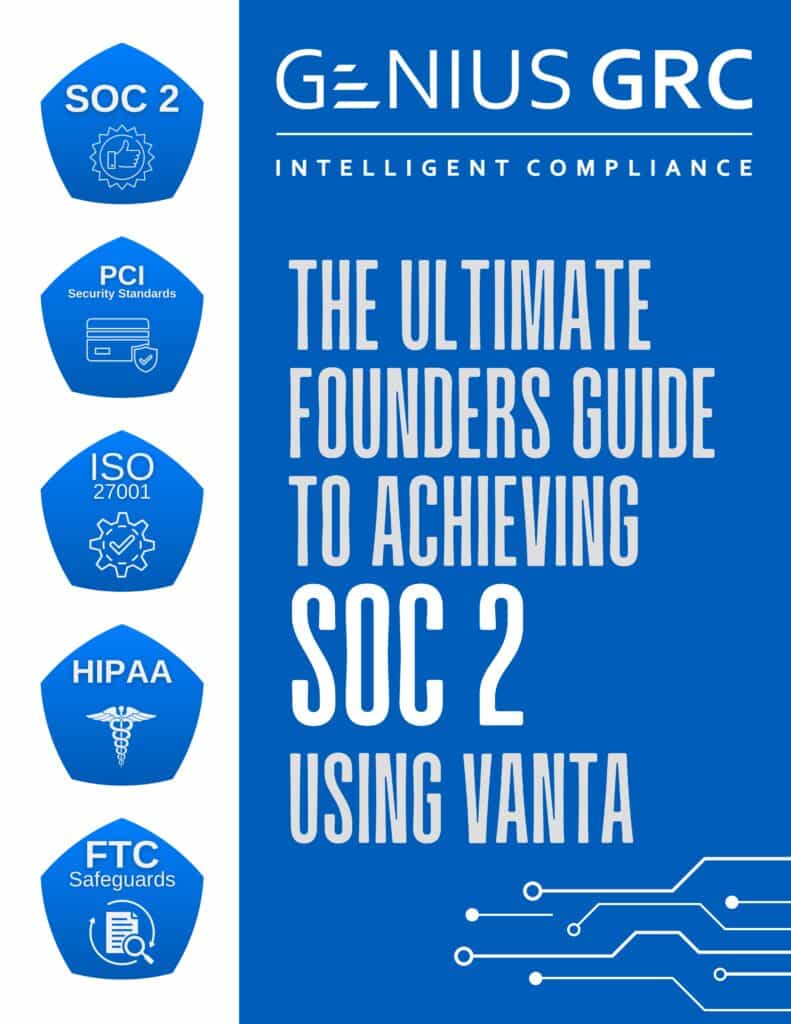
When your largest client demands that you undergo a SOC 2 audit, usually the top levels of the organization are quick to say “yes”. Some organizations find that understanding the requirements is incredibly difficult. To implement SOC 2 successfully, your organization has hundreds of decisions to make, controls to design, and procedures to implement. It has the potential to add additional load to your already overworked staff, or you may need to hire dedicated cybersecurity experts. We’ve shouldered the load successfully. We absolutely want you to succeed as well! Here’s some information to get you started on your SOC 2 journey. If you want some help, be sure to reach out to our team. We are here to help!
Finally, there is a free resource at the bottom of this page entitled “The Ultimate Founders Guide to Achieving SOC 2 Using Vanta”. It will give you a step-by-step guide to bootstrapping a successful SOC 2 program yourself.
Hidden
Small organizations of less than 20 people can get a cheap audit for around $5,000 and a very good audit for around $7,500. We’ve seen quotes for larger organizations (600+ personnel) get quoted for around $20k. Most of the expense of getting compliant comes in the form of building the control environment and having the staff to managed, monitor, and operate the controls. A highly qualified information security professional typically costs an organization $150k – $200k annually. Genius GRC’s pricing is typically about 70% cheaper than hiring a full-time cybersecurity expert. See our pricing page for transparent pricing. You don’t even need to engage with us to find out what you should budget. Note that pricing is re-evaluated quarterly.
Genius GRC staff have successfully implemented all 5 TSC (Trust Service Criteria).
